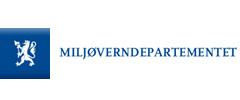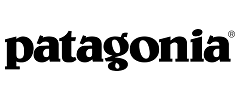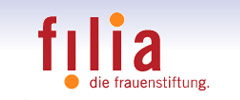Rio+20 Side Event: "Protecting Our First Environment"
Protecting women’s health and future generations from harmful environmental impacts was the topic of the event organised by WECF, IPEN and members of the Women’s Major Group today at Barra Arena at the Rio+20 conference.
14.06.2012 |WECF news from Rio+20

Dr Mariann Lloyd-Smith, Senior Advisor IPEN International POPs elimination network and AWHHE representative Lusine Nalbandyan explained how hormone disrupting, persistent and bio-accumulative chemicals and reproductive health accumulate in our bodies, and that each baby born today already has hundreds of such harmful chemicals in its body. Lloyd -Smith: “It is inacceptable that our children are born with this toxic burden, which is likely to create long term irreversible health damage, such as infertility and cancer”.
Dr. Olga Speranskaya, Co-chair of IPEN, winner of the Goldman Environment Prize, Russia gave testimonies of the widespread use of toxic substances in children’s products, she presented key points of the statement for a chemical free future which some 1000 people have signed and presented to governments at Rio+20 (www.ipen.org). “There are numerous examples of exposure sources of toxic chemicals including obsolete pesticide stockpiles which threaten the health of local people. NGO campaigns help to collect health data from affected communities and develop health improvement plans for territories”..
Alexandra Caterbow, Environmental Health expert, WECF international, presented two concrete examples of campaigns the toxic-free-toys campaign and the “nesting”-campaign on healthy indoor environments for new born babies. “it is inacceptable, but unfortunately, most toys nowadays contain a range of harmful substances, from carcinogenic cadmium and formaldehyde, to hormone disrupting plastic-softeners such as phthalates. Our children are the guinea pigs of industry”.
The toxic free toys campaign carries out test-your-toys events around Christmas time, where the public is invited to come and test their toys with specialists from laboratories – these events always obtain great press coverage. The nesting campaign has websites in 8 languages, consumer information guides, and gives trainings for health professionals. “We call on governments at Rio+20 to ban Hormone disrupting, persistent and bio-accumulative chemicals from our daily lives” concluded Caterbow.
Andrea Carmen, IITC (The International Indian Treaty Council), presented the link between the rights of indigenous peoples and environmental health. Their implementation and enforcement is urgently needed. Many cases show that especially women and children are victims. In Rio Yaqui (Mexico), for instance, where toxic chemicals were sprayed over crops, the rate of children born with permanent health damage was much higher than in a control group outside the sprayed area. The worst birth defects were the “Jelly Babies”, children born without bones. Countries such as USA, continue to export pesticides which are so toxic that they are banned in their own country. To address the problems of indigenous peoples, the 1st International Indigenous Women`s Environmental and Reproductive Health Symposium states “Indigenous women are life givers, life sustainers and culture holders. Our bodies are sacred places that must be protected, honored and kept free of harmful contaminants in order for the new generations of our Nations to be born strong and healthy.”
The side event was organised by together with IPEN International POPs Elimination Network and members of the Women’s Major Group.
Related News
Meet the Winners of the Gender Just Climate Solutions Award at COP24
On the 70th anniversary of the Universal Declaration of Human Rights, we awarded Gender Just Climate Solutions Winners at the climate negotiations in Katowice, Poland
11.12.2018
Invitation: Gender Just Climate Solutions Award 2018
10 December, COP24 Katowice
04.12.2018
Getting to the Future We Want
4-7 November, Brussels: European Environmental Bureau’s (EEB) Annual Conference
12.11.2018
GoodFood4All
WECF and partners all over Europe start GoodFood4All Campaign
06.11.2018
#Ruralwomen: join our Women2030 campaign!
15.10.2018






































